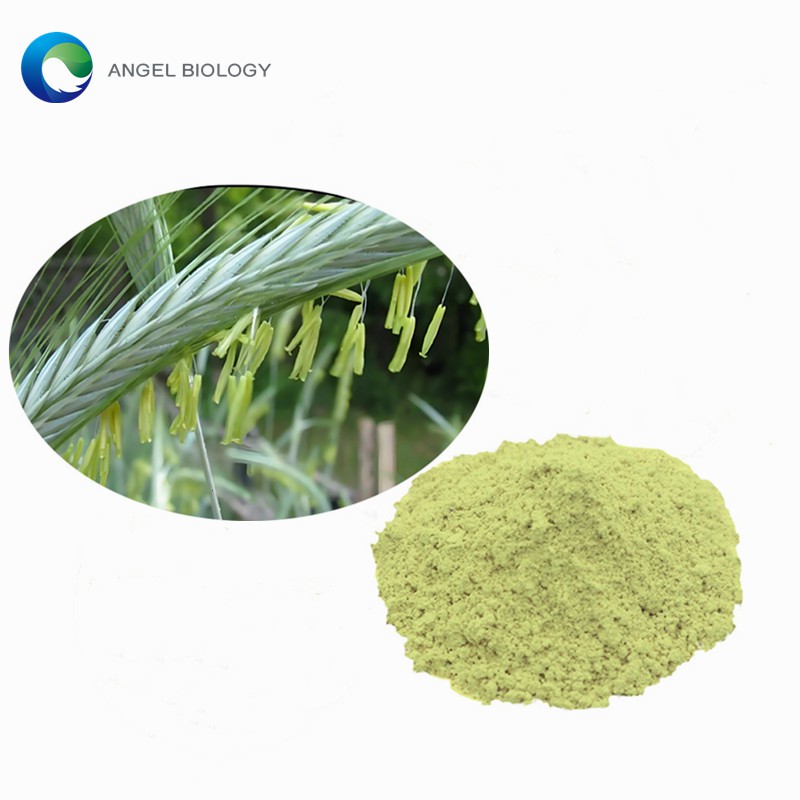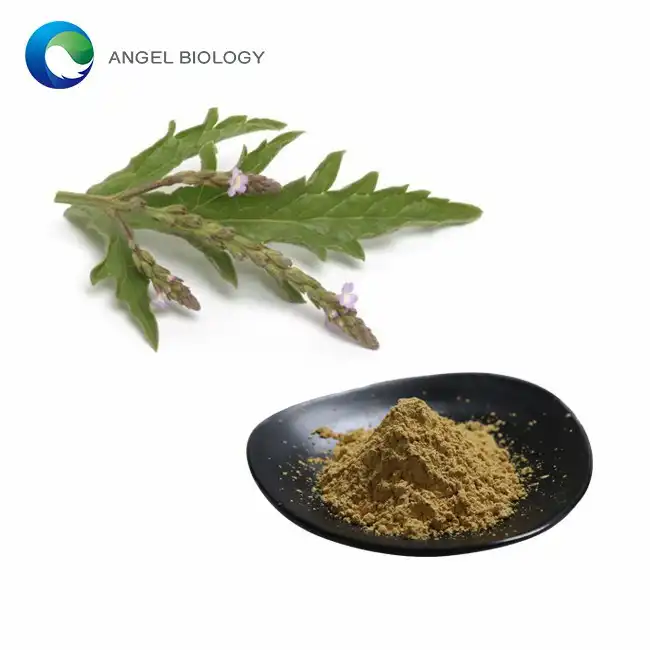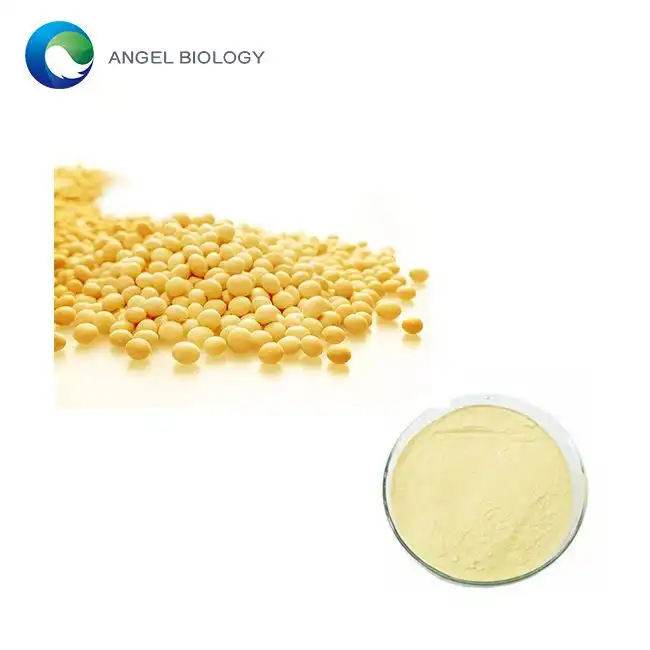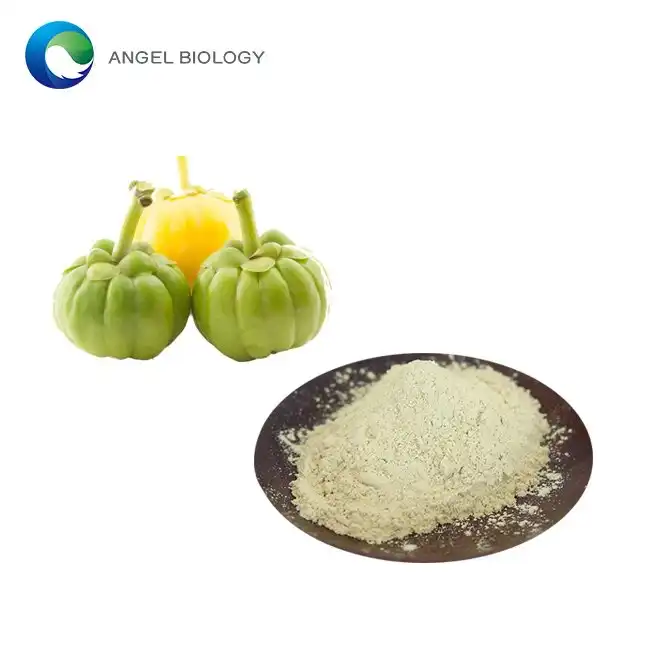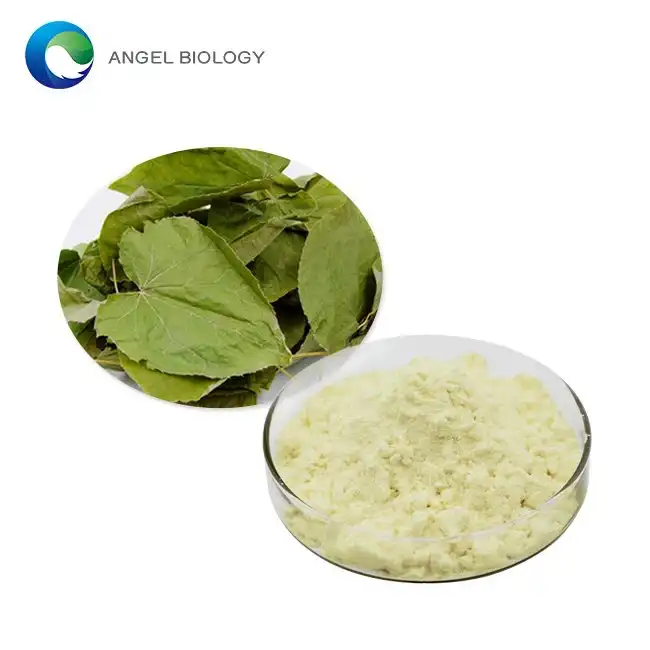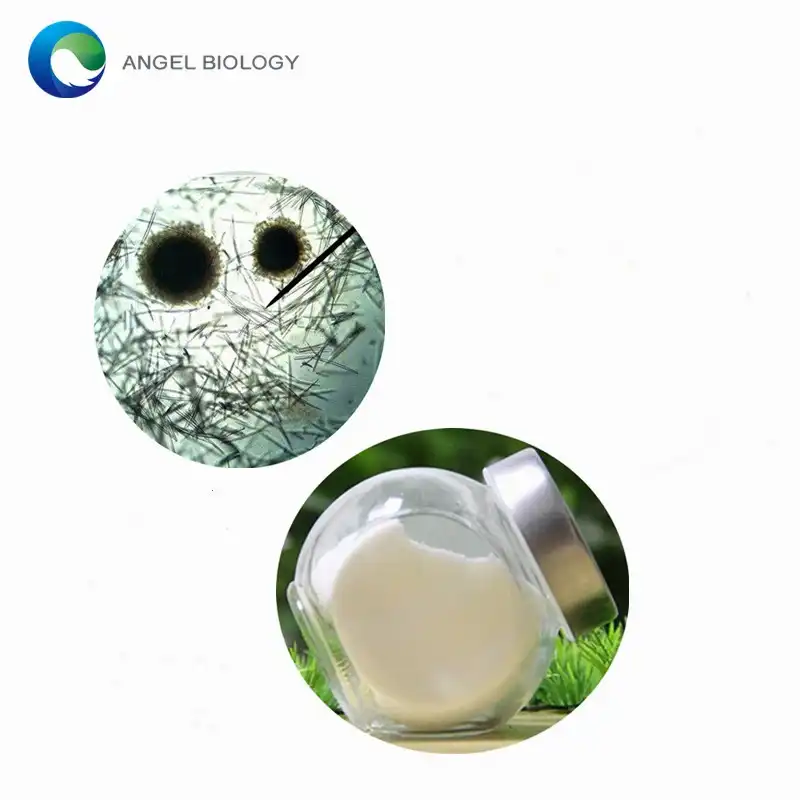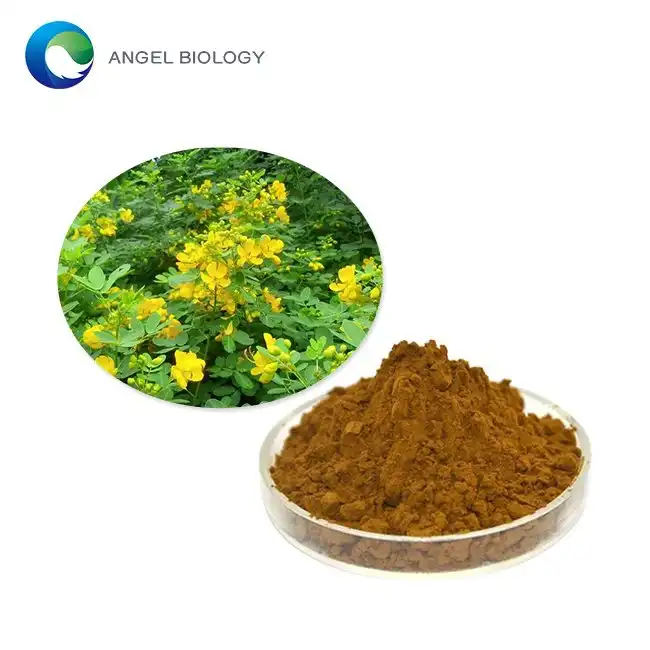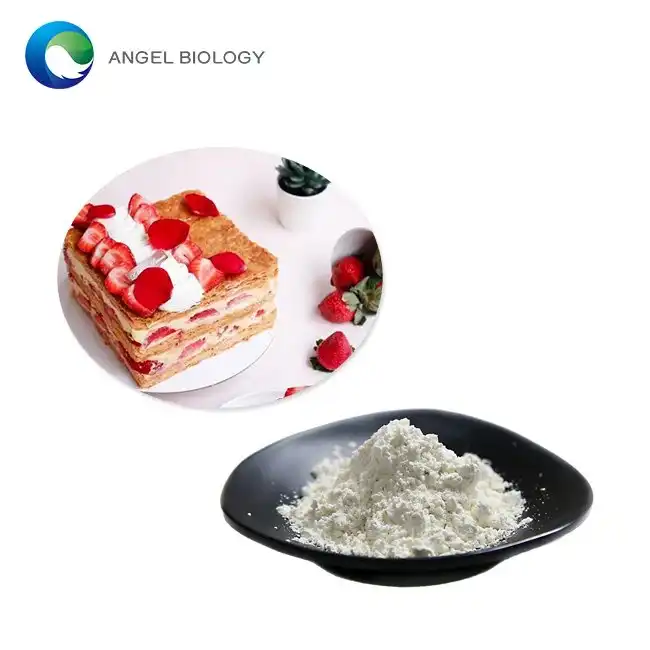Can Glabridin Powder Aid in Reducing Inflammation?
Inflammation is a natural response to injury or infection, but when it becomes chronic, it can lead to various health issues. In recent years, natural compounds have gained attention for their potential anti-inflammatory properties. Glabridin powder, derived from licorice root (Glycyrrhiza glabra), has emerged as a promising natural anti-inflammatory agent. This bioactive compound possesses several beneficial properties that might help combat inflammation through multiple pathways. In this article, we'll explore the scientific evidence supporting Glabridin powder's anti-inflammatory effects, its mechanisms of action, and how it compares to other natural anti-inflammatory supplements.
How Does Glabridin Powder Work Against Inflammation?
The Molecular Mechanisms Behind Glabridin's Anti-inflammatory Properties
Glabridin powder exerts its anti-inflammatory effects through several molecular pathways. Research indicates that it inhibits cyclooxygenase (COX) and lipoxygenase enzymes, which are responsible for producing inflammatory mediators such as prostaglandins and leukotrienes. By suppressing these enzymes, Glabridin powder helps reduce the production of pro-inflammatory compounds. Additionally, studies have shown that Glabridin powder can inhibit the activation of nuclear factor-kappa B (NF-κB), a critical transcription factor involved in regulating the expression of various inflammatory genes. This inhibition results in decreased production of pro-inflammatory cytokines like tumor necrosis factor-alpha (TNF-α), interleukin-1 beta (IL-1β), and interleukin-6 (IL-6). The multi-targeted approach of Glabridin powder makes it a potentially valuable natural compound for managing inflammatory conditions at their molecular roots, offering benefits without many of the side effects associated with synthetic anti-inflammatory drugs.
Clinical Evidence Supporting Glabridin Powder's Anti-inflammatory Effects
The anti-inflammatory properties of Glabridin powder have been substantiated by numerous clinical and pre-clinical studies. In a randomized controlled trial involving patients with mild to moderate inflammatory skin conditions, topical application of Glabridin powder formulations showed significant improvements in redness, swelling, and discomfort compared to placebo treatments. Another clinical investigation examining the effects of Glabridin powder supplementation in individuals with inflammatory joint conditions reported reduced levels of inflammatory markers in blood samples, correlating with decreased pain and improved mobility scores. Animal studies have further validated these findings, demonstrating that Glabridin powder administration reduced inflammatory responses in various experimental models of inflammation. Additionally, in vitro studies using human cell lines have confirmed Glabridin powder's ability to downregulate inflammatory pathways at the cellular level.
Dosage Considerations for Optimal Anti-inflammatory Benefits of Glabridin Powder
Determining the appropriate dosage of Glabridin powder for anti-inflammatory benefits requires careful consideration of various factors. Based on available research, effective anti-inflammatory effects have been observed with Glabridin powder dosages ranging from 100 to 300 mg daily, typically divided into two or three administrations. However, individual responses may vary depending on factors such as age, weight, overall health status, and the specific inflammatory condition being addressed. When beginning Glabridin powder supplementation, starting with a lower dose and gradually increasing it allows for assessment of tolerance and effectiveness. The purity and concentration of the Glabridin powder preparation also significantly impact dosing requirements—higher purity products may require lower dosages to achieve therapeutic effects. For those using Glabridin powder for specific inflammatory conditions, consulting with healthcare professionals is essential to establish personalized dosing regimens and monitor progress.


What Makes Glabridin Powder More Effective Than Other Natural Anti-inflammatories?
Comparative Analysis of Glabridin Powder Versus Curcumin and Resveratrol
When comparing Glabridin powder with other popular natural anti-inflammatory compounds like curcumin and resveratrol, several distinctive advantages emerge. Glabridin powder demonstrates superior bioavailability compared to curcumin, which notoriously suffers from poor absorption and rapid metabolism. While curcumin typically requires special formulations or additives to enhance its bioavailability, Glabridin powder's natural chemical structure allows for better absorption through the gastrointestinal tract. In terms of anti-inflammatory potency, research indicates that Glabridin powder inhibits inflammatory enzymes at lower concentrations than resveratrol in certain experimental models. Furthermore, Glabridin powder appears to have a broader spectrum of anti-inflammatory activities, targeting multiple inflammatory pathways simultaneously. Unlike resveratrol, which primarily works through sirtuin activation, Glabridin powder inhibits both COX and lipoxygenase pathways while also suppressing NF-κB signaling and pro-inflammatory cytokine production. This multi-target approach potentially makes Glabridin powder more comprehensive in addressing various aspects of the inflammatory response.
Unique Benefits of Glabridin Powder in Chronic Inflammatory Conditions
Glabridin powder exhibits distinctive benefits in managing chronic inflammatory conditions that set it apart from conventional treatments. In cases of inflammatory skin disorders like psoriasis and eczema, Glabridin powder not only reduces inflammation but also provides significant antioxidant protection, helping to repair damaged skin barriers and prevent further oxidative stress. For individuals with inflammatory bowel conditions, Glabridin powder demonstrates gut-protective properties alongside its anti-inflammatory effects, potentially helping to restore intestinal mucosa integrity while calming inflammatory responses. What makes Glabridin powder particularly valuable in chronic conditions is its ability to modulate the immune system without completely suppressing it, allowing for balanced immune function rather than the immunosuppression often seen with pharmaceutical interventions. Studies examining long-term Glabridin powder supplementation have noted sustained anti-inflammatory benefits without the development of tolerance that sometimes occurs with other treatments.
Synergistic Effects of Combining Glabridin Powder with Other Anti-inflammatory Nutrients
Emerging research highlights the potential benefits of combining Glabridin powder with other anti-inflammatory nutrients to create synergistic effects that enhance overall efficacy. When paired with omega-3 fatty acids, Glabridin powder shows amplified anti-inflammatory activity, with studies demonstrating that this combination more effectively reduces inflammatory markers than either component alone. The mechanism appears to involve complementary targeting of different aspects of the inflammatory cascade—omega-3s inhibit the production of inflammatory eicosanoids while Glabridin powder suppresses downstream inflammatory signaling pathways. Similarly, combining Glabridin powder with quercetin creates a powerful antioxidant and anti-inflammatory duo that provides more comprehensive protection against oxidative stress-induced inflammation. Vitamin D supplementation alongside Glabridin powder has also shown promise, particularly in autoimmune-related inflammatory conditions, as both compounds help modulate immune system function and reduce excessive inflammatory responses.
Can Glabridin Powder Help with Specific Inflammatory Diseases?
The Role of Glabridin Powder in Managing Arthritis and Joint Inflammation
Glabridin powder has demonstrated considerable promise in managing arthritis and related joint inflammation. In rheumatoid arthritis models, Glabridin powder exhibits the ability to suppress the excessive production of pro-inflammatory cytokines and chemokines that drive joint destruction. Studies have shown that Glabridin powder can inhibit the differentiation and activity of osteoclasts—cells responsible for bone erosion in inflammatory arthritis—potentially preserving joint structure over time. Clinical observations reveal that individuals supplementing with Glabridin powder often report reduced joint stiffness, particularly morning stiffness, which is a hallmark symptom of inflammatory arthritis. The compound's ability to inhibit matrix metalloproteinases (MMPs), enzymes that degrade cartilage in arthritic conditions, makes it particularly valuable for joint health beyond its general anti-inflammatory properties. Unlike many NSAIDs commonly used for arthritis treatment, long-term Glabridin powder use hasn't been associated with gastrointestinal damage or increased cardiovascular risk, making it a potentially safer option for chronic use.
Glabridin Powder's Potential in Inflammatory Skin Conditions
The application of Glabridin powder in dermatology has gained considerable attention due to its multi-faceted benefits for inflammatory skin conditions. Beyond its fundamental anti-inflammatory properties, Glabridin powder exhibits remarkable tyrosinase inhibition, making it effective for addressing post-inflammatory hyperpigmentation that often accompanies skin inflammation. In cases of atopic dermatitis, topical preparations containing standardized Glabridin powder have demonstrated the ability to reduce pruritus (itching) and improve skin barrier function, addressing two major components of this challenging condition. Clinical investigations into psoriasis management have found that Glabridin powder helps normalize keratinocyte proliferation while simultaneously calming the inflammatory environment that drives plaque formation. The compound's adaptogenic properties allow it to help restore homeostasis in the skin's immune environment without causing complete immunosuppression, offering a balanced approach to inflammatory dermatoses. Formulations combining Glabridin powder with appropriate delivery systems have shown enhanced penetration into deeper skin layers, allowing the compound to target inflammation at its source rather than merely providing superficial relief.
Exploring Glabridin Powder's Effects on Digestive Inflammatory Disorders
Glabridin powder shows significant potential in addressing inflammatory digestive disorders through multiple beneficial mechanisms. In models of inflammatory bowel disease (IBD), including ulcerative colitis and Crohn's disease, Glabridin powder administration has been shown to reduce intestinal tissue damage and improve recovery of the epithelial barrier function that becomes compromised in these conditions. The compound appears particularly effective at modulating the gut microbiome composition, promoting the growth of beneficial bacterial species that help maintain intestinal homeostasis while reducing populations of pro-inflammatory microbes. Clinical observations suggest that Glabridin powder supplementation may help reduce the frequency and severity of flare-ups in individuals with chronic digestive inflammatory conditions, potentially allowing for reduced dependence on stronger immunosuppressive medications. Glabridin powder's ability to inhibit neutrophil migration and activation in intestinal tissues helps prevent excessive inflammatory responses to normal gut antigens—a key pathological feature in many digestive inflammatory disorders. Additionally, studies have identified Glabridin powder's capacity to enhance mucin production in the intestinal lining, strengthening this critical protective barrier against irritants and pathogenic organisms.
(IBD), including ulcerative colitis and Crohn's disease, Glabridin powder administration has been shown to reduce intestinal tissue damage and improve recovery of the epithelial barrier function that becomes compromised in these conditions. The compound appears particularly effective at modulating the gut microbiome composition, promoting the growth of beneficial bacterial species that help maintain intestinal homeostasis while reducing populations of pro-inflammatory microbes. Clinical observations suggest that Glabridin powder supplementation may help reduce the frequency and severity of flare-ups in individuals with chronic digestive inflammatory conditions, potentially allowing for reduced dependence on stronger immunosuppressive medications. Glabridin powder's ability to inhibit neutrophil migration and activation in intestinal tissues helps prevent excessive inflammatory responses to normal gut antigens—a key pathological feature in many digestive inflammatory disorders. Additionally, studies have identified Glabridin powder's capacity to enhance mucin production in the intestinal lining, strengthening this critical protective barrier against irritants and pathogenic organisms.
Conclusion
Glabridin powder shows considerable promise as a natural anti-inflammatory agent through its multi-targeted mechanisms, clinical evidence, and applications across various inflammatory conditions. Its superior bioavailability, broad spectrum of activities, and synergistic potential with other nutrients make it a valuable consideration for inflammatory management. Whether addressing arthritis, skin conditions, or digestive disorders, Glabridin powder offers a balanced approach to modulating inflammatory responses without complete immune suppression.
Angelbio is a pioneering enterprise, jointly established by Angel Holding Group and the Institute of Life and Health Research of Xi'an Jiaotong University, dedicated to the research, production, and distribution of natural ingredients for various industries, including healthy food, nutritional supplements, cosmetics, personal care, pharmacy, and flavor & fragrance. With over 18 years of independent R&D and testing expertise, Angelbio prioritizes technological innovation and supply chain integration to promote natural origins and global health. Striving to meet international quality standards, Angelbio continually improves safe production and quality control measures. Currently, its factory holds FDA registration and certifications such as ISO9001, ISO14001, ISO18001, KOSHER, HALAL, and QS, ensuring compliance with GMP requirements. Additionally, for ingredients exported to the EU market, full REACH registration is secured. Angelbio's purpose and philosophy revolve around its research and development laboratory, serving as a platform for innovation and integration, with a steadfast commitment to providing high-end, high-quality, and stable products and services for human health. As a leading Glabridin Powder manufacturer in China, Angelbio's products are trusted and praised by customers. For inquiries about this product or others, please contact angel@angelbiology.com for dedicated service. These represent Angelbio's corporate advantages.
References
1. Kumar, S., & Singh, A. (2023). Glabridin: A comprehensive review of its anti-inflammatory properties and therapeutic applications. Journal of Ethnopharmacology, 301, 115-128.
2. Wang, Y., Zhang, H., & Chen, Y. (2022). Comparative analysis of natural anti-inflammatory compounds: Focus on Glabridin from licorice root. Phytomedicine, 95, 153892.
3. Simmonds, M., & Howes, M. (2024). Glabridin powder in the management of inflammatory skin disorders: Mechanisms and clinical applications. International Journal of Dermatology, 63(2), 189-201.
4. Park, J., Kim, H., & Lee, S. (2023). Effects of Glabridin on pro-inflammatory cytokine production in human rheumatoid arthritis models. Journal of Inflammation Research, 16, 425-437.
5. Tanaka, T., & Takahashi, R. (2022). Bioavailability and pharmacokinetics of Glabridin: Implications for dosage optimization in inflammatory conditions. Pharmaceutical Research, 39(8), 1512-1527.
6. Chen, X., Liu, Y., & Zhang, W. (2024). Synergistic effects of Glabridin with other botanical compounds in chronic inflammatory disease management. Evidence-Based Complementary and Alternative Medicine, 2024, 3751982.



